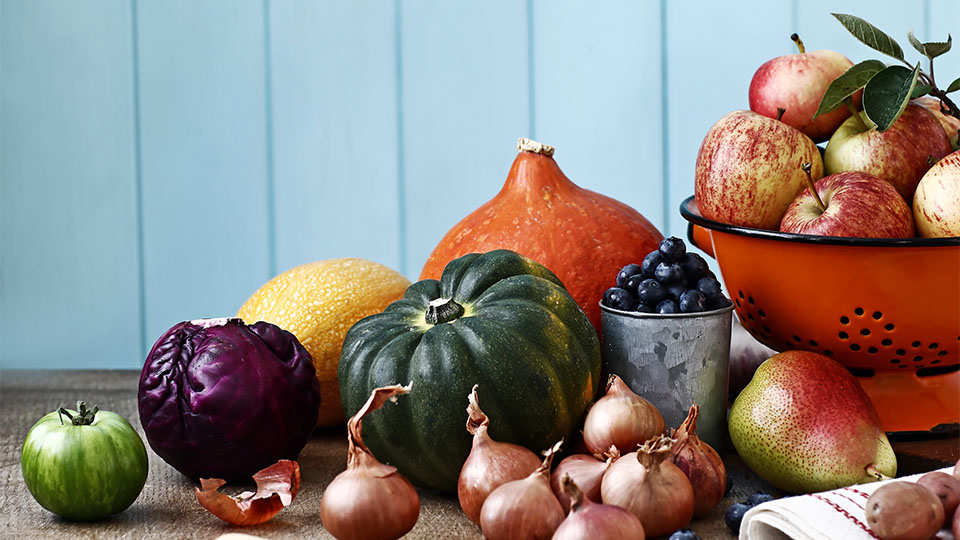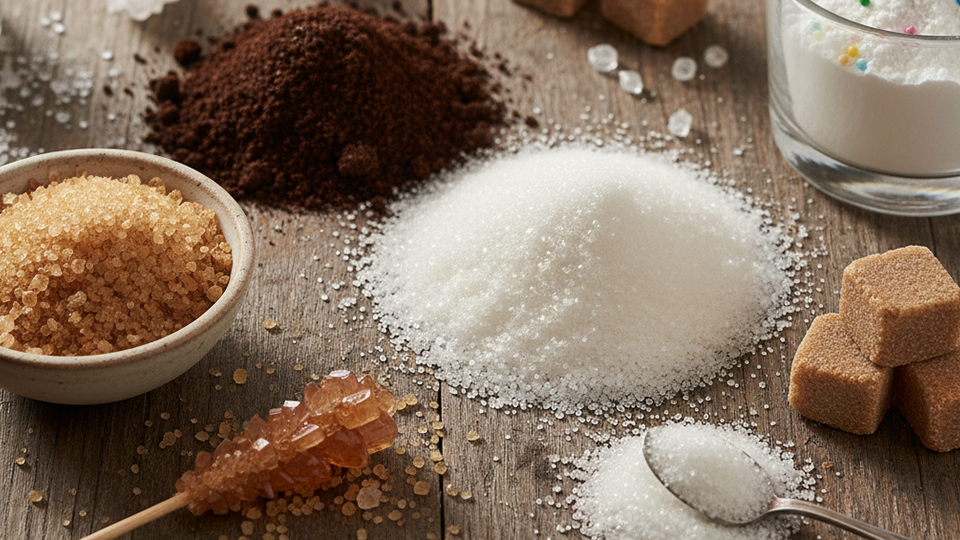The bounty of the fall season makes it easy to expand your menu with fresh seasonal produce.
We could all benefit from more servings of fruits and vegetables every day. Even if you make healthful food choices, chances are good that you don’t meet the recommended number of fruit and vegetable servings. An average adult should aim for about 2½ cups of vegetables and 2 cups of fruit each day, but nearly 90 percent of us fail to meet the guidelines for servings of vegetables, while 75 percent fall short on daily servings of fruit.
If you are using an Isagenix System, an essential part of planning your balanced 400-600 calorie meal is ensuring you fill half your plate with fruits and vegetables. The abundance of autumn produce is an opportunity to refresh your meals with greater variety and can help inspire you to get more fruits and vegetables every day, too. Make the most of fall with these tips for finding what’s in season near you, selecting the best-quality produce, and bringing out natural flavors in the kitchen.
What’s in Season in Autumn?
Because so many foods are available year-round, it’s not always obvious what’s in peak season. Your local farmer’s market can be a good resource for the freshest seasonal produce near you. These are some favorite fruits and vegetables that are in season during autumn.
- Fruits: Apple, pear, pomegranate, blackberry, fig, and persimmon
- Green vegetables: Brussels sprouts, Swiss chard, kohlrabi, and artichokes
- Orange vegetables: pumpkins, sweet potatoes, and hard squash varieties like acorn and butternut
- Red vegetables: sweet peppers, chili peppers, and beets
How to Pick the Best Produce
Most people have a favorite trick to selecting the best quality fruits and vegetables from the market, from thumping and tapping to squeezing and sniffing. In general, you can select quality produce by looking for fruits and vegetables that are free of blemishes and discolorations and have a firm, uniform texture. There are a few additional tricks to picking certain types of produce.
- The best pumpkins and squashes are firm, smooth, and heavy for their size
- Pears are ready to eat when the flesh near the stem yields slightly under firm pressure
- A ripe pomegranate is plump, rounded, and feels heavy in your hand
- Quality artichokes are large and rounded at the base and have tightly closed leaves
- The most tender beets are the size of your fist or smaller and are firm with smooth skins
Serve up Seasonal Flavors
When you start with the freshest seasonal produce, it can be nearly effortless to create a delicious and nourishing meal. Simple preparation techniques are often your best choice to allow the natural flavors of fall fruits and vegetables shine through in any recipe. Consider these ideas for a for a fresh, seasonal meal.
- Bring out big flavor with roasting
Any vegetable with a firm texture can be roasted with flavorful results, from beets to Brussels sprouts. For even roasting, cut vegetables into uniformly sized pieces, lightly brush olive oil, and spread the pieces in a single, even layer on a baking sheet.
- Don’t skip salads in fall
Autumn fruits and vegetables can make hearty additions to salads. Toss shaved Brussels sprouts with a light dressing, add grated beets for bright color, or toss in shredded kohlrabi. Sprinkling pomegranate seeds or adding a crisp, sliced pear offers a sweet crunch to any fresh salad.
We can all benefit from adding more servings of fruits and vegetables to our day. Take advantage of the seasonal abundance and variety of fall produce for fresh inspiration for nourishing meals.
Reference
U.S. Department of Health and Human Services and U.S. Department of Agriculture. 2015 – 2020 Dietary Guidelines for Americans. 8th Edition. December 2015. Available at http://health.gov/dietaryguidelines/2015/guidelines/.





